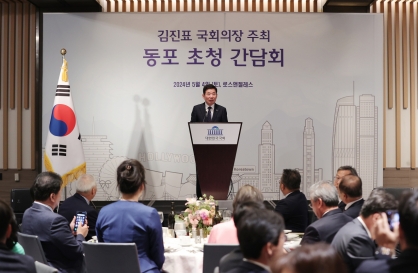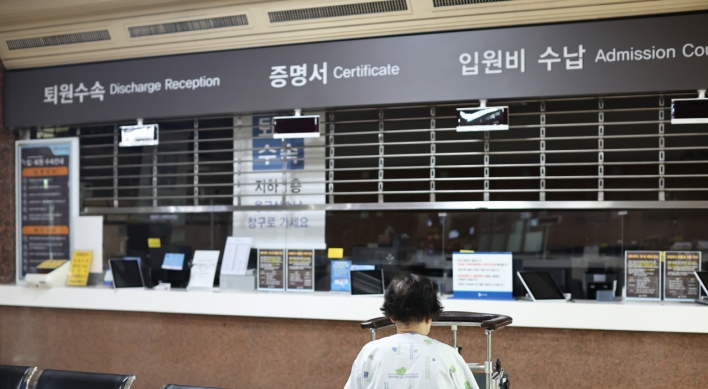Park Geun-hye, the leading presidential contender of the ruling Saenuri Party, on Monday defended her father Park Chung-hee's military coup in 1961, but offered an apology for victims of his authoritarian rule.
The senior Park seized power in the coup and ruled the country as president until 1979 when he was assassinated by his top intelligence aide. Assessment of him is divided, with conservatives crediting him for South Korea's economic development and detractors calling him a dictator.
Legacy of her father is expected to be an issue for Park as she campaigns for the top office.
"I think my deceased father made the best choice in an unavoidable situation," Park said during a debate organized by a journalists' association, stressing her father laid the foundation of South Korea's rise from the ashes of the 1950-53 Korean War to become Asia's fourth largest economy.
Still, she said, the coup should be judged by people and history and she renewed her apology to South Koreans who suffered under her father's authoritarian rule.
Some South Koreans credit Park's father for rebuilding South Korea from an economic basket case, while others accuse him of violating human rights and clamping down on democracy during his rule.
Park's comments on her father's legacy have not changed much from in 2007, when she described the coup as a revolution to save the country.
Park also said she is opposed to the breaking up large family-controlled conglomerates, known as chaebol.
Park said the main opposition Democratic United Party's call for the disintegration of chaebol "is not desirable for our economy."
She said that conglomerates and small- and medium-sized companies should grow harmoniously under fair opportunities and that economic democracy should be made in a way that rein in the conglomerates' possible abuses of their economic clout.
Park has called for sweeping chaebol reforms, which include restraint on presidential pardons for convicted chaebol owners and managers.
South Korea's judiciary has a track record of giving lenient treatment to top business leaders who are convicted of crimes.
The comment follows corporate bashing by political parties ahead of the December presidential elections.
Finance Minister Bahk Jae-wan said last week that political parties should not go too far in their push to rein in the growing influence of conglomerates, warning excessive measures could irk foreign investors.
Chaebol have played a key role in boosting South Korea's export-driven economy in recent decades, though they have long been at the center of public criticism over their perceived abuse of economic power.
Park also said she believes it would be good to cooperate with a person like prominent software entrepreneur-turned-professor Ahn Cheol-soo for her presidential bid, but she remained cautious on Ahn, noting she did not know what he truly thinks.
Ahn has been tipped as a potential opposition candidate for the December presidential election since his stunning debut in the political community during last year's Seoul mayoral election.
Still, Ahn, who has been neck and neck with Park in opinion polls for months, has yet to give a clear-cut answer on whether he will seek the country's top political job. (Yonhap News)




![[AtoZ Korean Mind] Does your job define who you are? Should it?](http://res.heraldm.com/phpwas/restmb_idxmake.php?idx=644&simg=/content/image/2024/05/06/20240506050099_0.jpg&u=)













